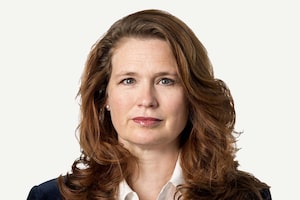Good morning. Wendy Cox in Vancouver this morning.
Andrea Woo’s months-long investigation into the kickbacks some pharmacies are offering to often vulnerable patients shone sunlight into an odious practice that has apparently been going on for years with the knowledge of the pharmacists’ regulating body.
Under a scheme sources independently told Andrea is being utilized by more than a dozen pharmacies, prohibited cash incentives are paid to patients to fill their prescriptions at their locations and recruit others to do the same, maximizing the amounts that the pharmacies can bill the province’s publicly funded drug plan. The pharmacies appear to target economically vulnerable patients – largely those with substance-use disorders.
Pharmacies in Vancouver, Burnaby, Surrey, New Westminster and Victoria have been participating, according to some of the 28 doctors, nurses, pharmacists, patients and social-service providers interviewed by Andrea. The Globe is not identifying many of the sources, including doctors and pharmacists who said they were worried about professional repercussions, and patients who were concerned that they would lose access to medications.
Andrea explains that pharmacies charge a dispensing fee for each prescription, and these fees make up a significant portion of their overall revenue. For patients on income assistance and with First Nations health benefits, a pharmacy that is enrolled with PharmaCare can bill the publicly funded program for up to $10, for each of up to three medications, per patient, per day.
In an apparent effort to maximize these fees, some pharmacies pay patients cash incentives to fill their prescriptions at their locations, with amounts being kicked back to patients commonly being reported as $50 a week, according to five people receiving such payments. Additional cash is offered to those who recruit others to those pharmacies.
The practice ties a patient to a pharmacy, even if their needs might be better met at a different clinic. It can also lead patients to fill prescriptions they don’t need so they qualify for the kickback, costing the taxpayer-funded drug plan.
The College of Pharmacists of B.C. explicitly prohibits pharmacies from offering inducements on costs paid by PharmaCare. In 2016, the regulatory body enacted bylaws banning pharmacies from offering incentives such as cash, coupons and loyalty points on any prescription medication, prescribed medical supplies or for pharmacy services.
Andrea reviewed correspondence from, and spoke with, complainants who have formally reported problem pharmacies to both the College of Pharmacists of B.C. and the Ministry of Health. None of those complaints resulted in the pharmacists, or pharmacies, facing penalties.
Lisa Howard, a family physician who provides primary and addictions care in Vancouver’s Downtown Eastside, said she and her colleagues have reported problem pharmacies to the college on several occasions.
“The College of Pharmacists doesn’t care,” she said. “They said, ‘We can’t accept your complaint unless it comes from the patient who’s directly benefiting from it.’ So the patient has to complain that they’re getting paid, essentially, which doesn’t make sense to me.”
The college did not respond this week to specific questions from The Globe and declined an interview request with registrar and CEO Suzanne Solven.
A statement provided by spokesperson Lesley Chang said the college “has a long-standing concern about the negative effects of incentive programs in the practise of pharmacy.”
A day after the story ran in The Globe, the B.C. Pharmacy Association called on the province and the college to investigate the problem pharmacies.
Mike Huitema, president of the association, which represents thousands of pharmacists in the province, said he is aware of recent, informal discussions among the organization, the Health Ministry and the College of Pharmacists of B.C. about a number of bad actors in the industry. The association, he said, has urged the ministry and the college to take action.
“We have zero tolerance for this; we do not support these kinds of practices,” he said in an interview. “We hope that the ministry and the college can do something relatively quickly.”
At an unrelated news conference on Thursday, Health Minister Adrian Dix reiterated that he could not comment on whether an investigation is under way, but said “rules are there to be upheld, and they will be upheld in B.C.”
“I can assure you that if people think that practices that are unacceptable will be allowed, then they are sorely mistaken,” he said.
This is the weekly Western Canada newsletter written by B.C. Editor Wendy Cox and Alberta Bureau Chief Mark Iype. If you’re reading this on the web, or it was forwarded to you from someone else, you can sign up for it and all Globe newsletters here.
 Wendy Cox
Wendy Cox